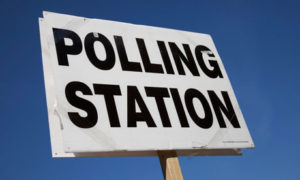I’ve written about this before, but I cannot say it enough.
Amarillo’s history of dismal voter turnouts is no endorsement of how well the city is being run. It’s more basic than that. It just pure apathy. We don’t care.
The city is tracking toward another municipal election. Filing for the five City Council seats has begun. It will end on Feb. 17. My trick knee tells me the ballot will be full, that all five council seats will have multiple candidates vying for election to the governing board that pays its occupants a whopping $10 per public meeting.
I’ve been watching Amarillo’s municipal elections for 22 years. Most of that time was spent as a working journalist, as editorial page editor of the Amarillo Globe-News. I have lamented, scolded and cajoled Amarillo residents to turn out to vote for these races.
Most years residents have ignored my entreaties. I don’t take the rejection personally.
They’ve registered often in the mid to high single-digit percentages. When we put ballot measures up for decision from time to time, the turnout spikes dramatically. My favorite example was the 1996 vote to sell the publicly owned Northwest Texas Hospital to a private health care provider; 22 percent of voters turned out for that one and you’d have thought — listening to city officials — that they’d just discovered a cure for the common cold.
I chose at the time to look a good bit more dimly at the turnout, noting that four out of five voters stayed away from the polls.
My question always has been: Do these dismal turnouts reflect some sort of endorsement of the way City Hall is being run? I don’t believe that’s necessarily the case. I do, though, believe in the human trait to respond more vigorously to negativity than to positivity.
My initial hope for this next election is that, given what I expect to be a ballot full of candidates, the turnout far exceeds what’s become a sad norm in Amarillo. My other hope, of course, is that the election produces victories for the right candidates. I’ll have more to say later on who I think should win.
Today, though, my target is that turnout matter. Historically in this city, it stinks. I want residents to wipe away the odor by voting in large numbers.
Representative democracy works better when more people — not fewer of them — take part.
I’ve noted this, too, before: Why would anyone want to leave the choices for the people who set their property tax rates to someone else? We all have a stake in these local elections and it is incumbent on all of us to have our voices heard.
